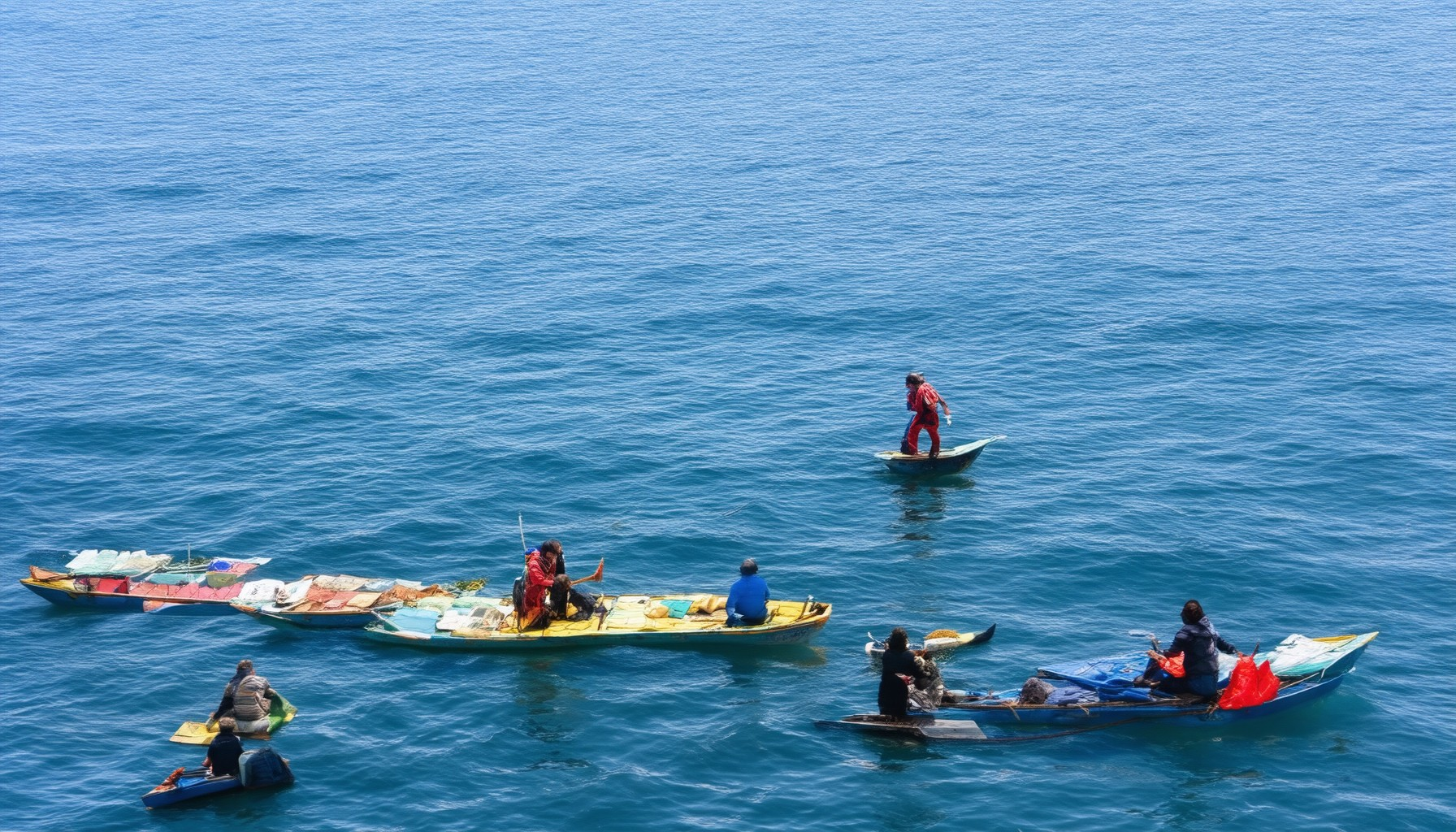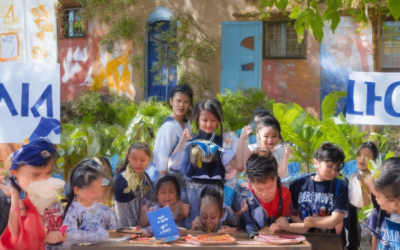Exploring the world of humanitarian volunteer trips offers a unique opportunity to make a meaningful difference while gaining profound personal growth. These trips provide individuals with the chance to contribute to global causes, from disaster relief and healthcare initiatives to education and community development. Whether you’re seeking free humanitarian volunteer trips or all-inclusive programs, the experience promises to leave a lasting impact on both volunteers and beneficiaries. Join us as we delve into the costs, responsibilities, and life-changing experiences associated with humanitarian volunteer work, uncovering how these trips can transform lives and communities worldwide.

How Much Does It Cost to Go on a Humanitarian Trip?
The cost of participating in a humanitarian trip varies widely depending on the organization, destination, and duration of the trip. Here’s a breakdown of the typical price ranges:
- Cheapest Options :
- Local NGOs or religious groups often have lower fees, typically ranging from $300 to $800 per person per week. These groups may rely heavily on donations or grants, making their programs more affordable.
- Mid-Range Organizations :
- Established, mid-range humanitarian organizations generally charge between $800 to $1,500 per person per week. Some of these groups offer scholarships or discounts, particularly for longer-term commitments.
- Premium Experiences :
- International volunteer agencies often charge more, with prices ranging from $1,200 to $2,500 per person per week. These programs may include flights, accommodation, and meals, making them a more comprehensive option.
- High-End Programs :
- High-end humanitarian trips, such as those involving extensive training or mentorship, can cost upwards of $2,500 to $5,000+ per person . These programs are often competitive and may require significant preparation.
Additional considerations include:
- Hidden Costs : Some programs may not cover all expenses, so it’s important to clarify whether transportation, food, and housing are included.
- Fundraising Requirements : Some organizations may expect participants to raise funds, which can affect the overall cost.
- Payment Plans : Many organizations offer payment plans or discounts for longer stays, so it’s worth checking for these options.
For the most accurate and up-to-date information, we recommend reaching out directly to the humanitarian organizations you’re interested in. Costs and program details can change, and each group has unique requirements and policies.
What to Do on a Humanitarian Trip
A humanitarian trip offers a unique opportunity to make a positive impact on communities in need. Here’s a structured overview of what you can expect and how to approach such an experience:
1. Preparation
- Research and Planning: Understand the mission, goals, and objectives of the trip. Identify the specific needs of the target community.
- Training and Skills: Acquire necessary skills or undergo training relevant to the tasks ahead, such as medical aid, construction, or education.
- Logistics: Arrange transportation, accommodation, and necessary supplies. Ensure you have the right gear and documents.
- Safety Measures: Consult with organizers regarding health and safety protocols, including vaccinations and health checks.
2. On-the-Ground Activities
- Field Work: Engage in tasks such as building infrastructure, distributing aid, conducting educational workshops, or providing medical care.
- Daily Routine: Participate in morning meetings, task assignments, and group meals. Adhere to schedules and communicate effectively with team members.
- Cultural Sensitivity: Respect local customs, languages, and traditions. Be mindful of cultural differences in communication and social interactions.
3. Safety and Well-being
- Stay Alert: Follow safety guidelines provided by organizers. Be aware of your surroundings and any potential risks.
- Mental Health: Anticipate emotional challenges and seek support from peers or organizers. Practice self-care to maintain physical and mental health.
4. Post-Trip Reflection
- Debriefing Sessions: Share experiences, reflect on achievements, and discuss challenges faced during the trip.
- Learning and Growth: Document lessons learned and consider how to apply this knowledge in future endeavors.
5. Long-Term Impact
- Sustainability: Explore ways to ensure the impact of your work continues beyond the trip through partnerships or follow-up programs.
- Advocacy: Use your experience to advocate for causes and inspire others to get involved.
6. Networking
- Professional Connections: Meet like-minded individuals and professionals who share a commitment to humanitarian work.
- Collaborations: Exchange ideas and potentially collaborate on future projects with new contacts.
7. Duration and Scope
- Short-Term vs. Long-Term: Consider the duration of the trip, which may vary based on the scale of the project.
- Specialized Roles: Some trips offer specialized tracks, such as healthcare, education, or engineering, allowing participants to focus on specific areas.
8. Documentation
- Recordkeeping: Keep detailed records of your activities, including photos, videos, and logs of progress made.
- Reporting: Prepare reports to share findings and outcomes with stakeholders and supporters.
By participating in a humanitarian trip, you contribute to meaningful change while gaining valuable life experiences and skills. Approach the journey thoughtfully, engage fully, and leave a lasting positive impact.

What Do Humanitarian Volunteers Do?
Humanitarian volunteers play a vital role in supporting communities affected by crises, disasters, or social challenges. Their efforts span a wide range of activities, from immediate emergency response to long-term recovery and rebuilding efforts. Here’s a breakdown of their primary responsibilities:
- Disaster Response and Relief: Volunteers often work in collaboration with emergency services, NGOs, and local authorities to provide essential supplies, shelter, and medical assistance during natural disasters like earthquakes, floods, or wildfires.
- Healthcare Support: Many volunteers assist in setting up temporary clinics, distributing medications, and providing basic health care to those affected by disasters or conflicts.
- Education and Child Development: In regions affected by displacement or conflict, volunteers may work with children through programs that provide schooling, emotional support, and recreational activities.
- Community Development: Beyond immediate needs, volunteers help rebuild infrastructure, restore economic stability, and promote sustainable development in underserved areas.
- Advocacy and Awareness: Volunteers frequently engage in raising awareness about humanitarian issues, advocating for policy changes, and mobilizing public support for causes.
In addition to these roles, humanitarian volunteers often collaborate with international organizations, local non-profits, and governments to ensure efficient and effective aid delivery. Their work is driven by compassion, dedication, and a commitment to making a positive impact in communities in need.
To learn more about how you can get involved or find opportunities to volunteer, visit our Volunteer Opportunities section.

Do Humanitarian Volunteers Get Paid?
Humanitarian volunteers typically do not receive monetary compensation for their work. However, some organizations may offer stipends or reimbursement for specific expenses such as travel, accommodation, or meals.
Exceptions and Special Cases
- Stipends: Some organizations provide stipends based on the duration or nature of the volunteer work.
- Reimbursement: Volunteering often involves costs that are covered by the organization, reducing the financial burden on the volunteer.
- Specialized Roles: In certain cases, professionals with expertise may receive compensation for their skills and contributions.
It’s important to note that the majority of humanitarian work is driven by passion and dedication rather than financial gain. Organizations rely heavily on volunteers who are committed to making a difference, regardless of compensation.
How Much Money Do Volunteers Get?
Volunteer compensation varies significantly depending on the role, location, and organization. Here’s a breakdown of typical payment structures:
- Full-Time Volunteers: Some organizations offer stipends or monthly salaries. For example, in Nairobi, Kenya, a full-time volunteer role might pay around KES 30,000 per month.
- Part-Time Volunteers: These roles often receive a hourly rate, typically ranging from KES 100 to KES 300 per hour, depending on the organization and role.
- Project-Based Volunteers: Payments are usually based on the duration and scope of the project, with rates varying from KES 15,000 to KES 50,000 per month.
Factors influencing volunteer pay include:
- Experience and Skills: More experienced volunteers may command higher rates due to their expertise.
- Location: Urban areas like Nairobi tend to offer higher compensation compared to rural regions.
- Organization Budget: Nonprofits with limited funding may offer lower or no financial compensation.
- Role Responsibilities: Positions requiring specialized skills or extensive time commitments may pay more.
Additionally, many organizations allow volunteers to donate or contribute, which can provide supplementary income. These contributions are optional and vary by organization.
For the most accurate and up-to-date information, we recommend checking specific volunteer opportunities through trusted platforms like Glassdoor or the organization’s website.

How to Get Started in Humanitarian Work
Starting in humanitarian work can be a rewarding journey, but it requires careful planning and dedication. Here’s a step-by-step guide to help you begin:
- Research and Understand the Field
- Learn about the various aspects of humanitarian work, including disaster relief, health initiatives, education, and advocacy.
- Identify organizations that align with your passion and values, such as Red Cross or UNICEF .
- Build Essential Skills
- Develop strong communication skills for effective teamwork and reporting.
- Learn basic medical terminology or gain first aid certification if working in healthcare settings.
- Gain Experience Through Volunteering
- Volunteer locally with organizations like Humane Society or community-based groups.
- Seek international volunteer opportunities through platforms like World Wide Volunteers .
- Obtain the Right Education and Certifications
- Pursue degrees or certifications in fields like international development, public health, or social work.
- Consider taking courses from institutions like Johns Hopkins University or London School of Economics .
- Network and Build Relationships
- Connect with professionals in the field through LinkedIn or industry events.
- Join forums and communities like Devex to stay updated on job opportunities and resources.
- Apply for Jobs or Internships
- Search for positions on platforms like ReliefWeb or Careers in International Development .
- Target NGOs, international organizations, and governmental agencies.
- Stay Informed About Global Issues
- Follow news outlets dedicated to global affairs, such as BBC or Al Jazeera .
- Engage with podcasts and articles on humanitarian topics to broaden your knowledge base.
- Plan for Long-Term Commitment
- Understand the emotional and physical demands of humanitarian work.
- Prepare for challenges like cultural differences and limited access to amenities.
- Consider Financial Preparation
- Explore funding options through grants, scholarships, or crowdfunding platforms.
- Research visa requirements for international placements.
By following these steps, you can effectively navigate the path toward a fulfilling career in humanitarian work. Remember to stay adaptable and committed to making a positive impact.





0 Comments